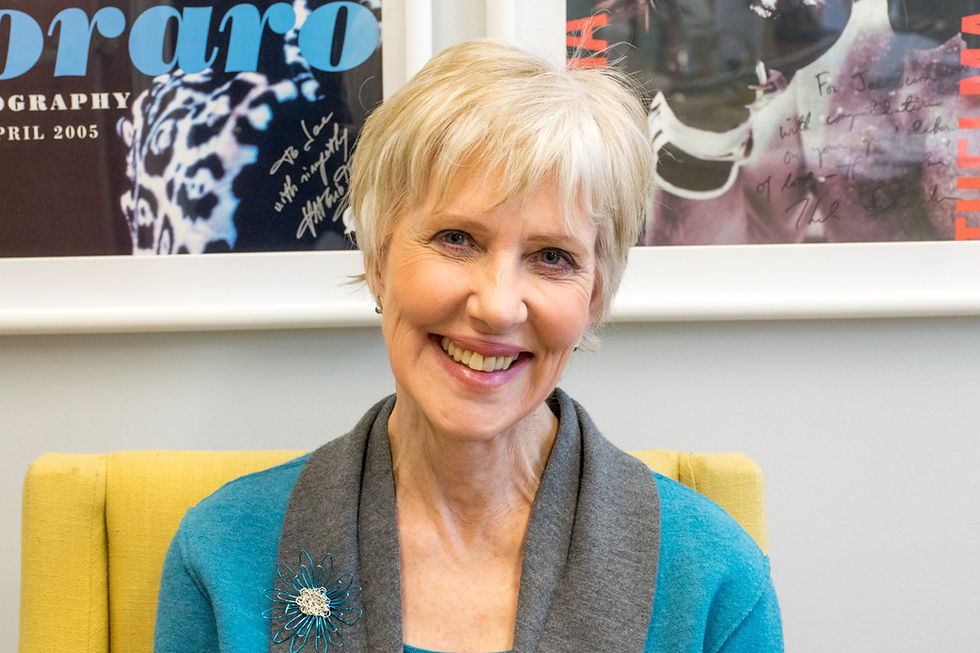Megan Gates - Partner - Covington & Burling
- Japan Society of Boston

- Nov 12, 2025
- 3 min read
Would you introduce yourself briefly?
I’m a partner in the corporate group at the Boston office of the law firm Covington & Burling. I work with life sciences companies to help them raise funds to support their research and development of new therapies, and to complete transactions like mergers and acquisitions. I live in the South End of Boston with my husband Bill and our dog Charlie, and I also try to get back to Tokyo as much as I can.
You grew up in Japan, spending time there in both elementary school and high school. How do you think your early exposure to Japanese culture influenced you?
I think my early exposure to Japanese culture gave me an appreciation and understanding of the importance of trying to live harmoniously with others. I believe that while expressing one’s individuality is essential, it is also incredibly valuable to place respect for others’ experiences, including how they experience working and living in community with you, at the core of how one interacts with the world. I try to be mindful of those around me in any setting, and to consider how my actions may affect others.
I also have an abiding love for Japanese art, including woodblock prints. I find it hard to resist adding to my collection, even though I am out of wall space to hang new acquisitions!

As a lawyer, what led you to specialize in the life sciences industry and what unique legal challenges have you seen companies in this field face?
For me, the intersection of the life sciences industry and the law is compelling in that the work that I do to help companies obtain financing or complete transactions may play a small role in helping to bring new medical therapies or devices to the market. The process of developing a drug or device is long, arduous and filled with potential obstacles. Lawyers can help life sciences companies navigate those obstacles by facilitating the process of raising funds, managing disclosure obligations, and helping with regulatory compliance. I find that process to be very satisfying.
Life sciences companies must contend with the challenges of raising funds in a very competitive landscape for investment from sophisticated investors, while also managing complex regulatory obligations, recruitment and retention of talented employees, and compliance with corporate governance mandates. It’s a privilege to help companies like this with legal matters so that they can focus on their businesses, and on the development of promising therapies and devices, for the benefit of us all.
What lessons have you learned from Covington’s cross-cultural work advising large Japanese corporations and partnering with Japanese law firms?
Covington has for many years had a Japan Initiative that is focused on facilitating connections between Japanese corporations with ties to the United States and lawyers with expertise in the areas needed by those corporations. Several times a year, the leaders of the Japan Initiative visit Tokyo, Osaka and other cities in Japan with experts from Covington’s U.S. and European offices, for a series of meetings to provide updates on legal topics of current interest to Japanese businesses operating (or seeking to operate) in the U.S. and Europe. During those trips, the Japan Initiative members also meet with representatives of some of the large Japanese law firms, where we have the opportunity for dialogue on current issues facing our respective clients.
I recently had the opportunity to take part in one of those trips that was focused on corporate venture capital and investment activities in the life sciences industry in the U.S. This reinforced to me the vibrancy and importance of the connections between the life sciences industry in Japan and the United States, and the business potential and opportunities that are generated by true cross-cultural exchange.

You are an active member of community organizations in Boston, having previously served on the board of the Japan Society of Boston and currently taking a leadership role in the Pine Street Inn board. How do you feel that your experiences in Japan informed your approach to community involvement?
I subscribe to the viewpoint that from those to whom much has been given, much is expected. As noted above, my early years in Japan imbued me with the conviction that each of us plays a key role in creating and fostering a harmonious society. Living in the city of Boston, I feel fortunate to be part of a community that tries its best to lift up and support all of its members, both through philanthropy and through the direct involvement of volunteers.








